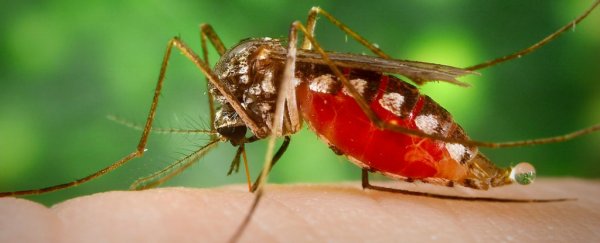With Zika now being transmitted by mosquitoes in the continental US, and Rio having too many issues to count, even on top of their months-long outbreak, it's been a pretty scary time for those living in affected areas.
But the good news is not one but three vaccines have been shown to fully protect non-human primates from Zika virus, and they're now ready to move onto human trials.
Researchers in the US have trialled three vaccine candidates: a purified inactivated virus vaccine (ZPIV); a vector vaccine; and one that uses a small section of the Zika virus genome inserted into a harmless adenovirus. All three prevented infection in animal trials.
"Three vaccines provided complete protection against Zika virus in non-human primates, which is the best animal model prior to starting clinical trials," said senior author Dan Barouch from Harvard University.
"The consistent and robust protection against Zika virus in both rodents and primates fuels our optimism about the development of a safe and effective Zika vaccine for humans."
The vaccines were developed as part of a collaboration between the Walter Reed Army Institute of Research, the Beth Israel Deaconess Medical Centre, and Harvard Medical School.
All three granted complete protection when used to inoculate 20 rhesus monkeys, after two weeks, none of the monkeys showed any adverse effects. The vaccines protected against both the Brazilian and Puerto Rican strains of the virus.
"Results from both mouse and non-human primate testing are encouraging and support a decision to move forward with our US government, industry, and regulatory partners to advance our ZPIV vaccine candidate to human trials," said one of the researchers, Col. Stephen Thomas from the Walter Reed Army Institute of Research.
"We hope that by leveraging a proven technology we increase our chances of developing a safe and effective Zika vaccine."
The bad news is we can't say goodbye to Zika just yet. Even through the researchers are about to get human trials underway, a market-ready version of any of the three vaccines could still be up to a few years from deployment.
"All of the vaccines currently under development are many years away from being licensed and available for widespread public use," Ed Wright, a virologist at the University of Westminster who was not involved in the study, told the BBC.
Zika has been devastating for pregnant woman with the virus, with over 1,700 cases of microcephaly linked to it in the last year.
Microcephaly can cause babies to be born with abnormally small heads, leading to underdeveloped brains, tissue swelling, and a number of other serious birth defects.
The researchers hope to have a clinical trial of the vaccines launched later this year.
The research has been published in Science.
